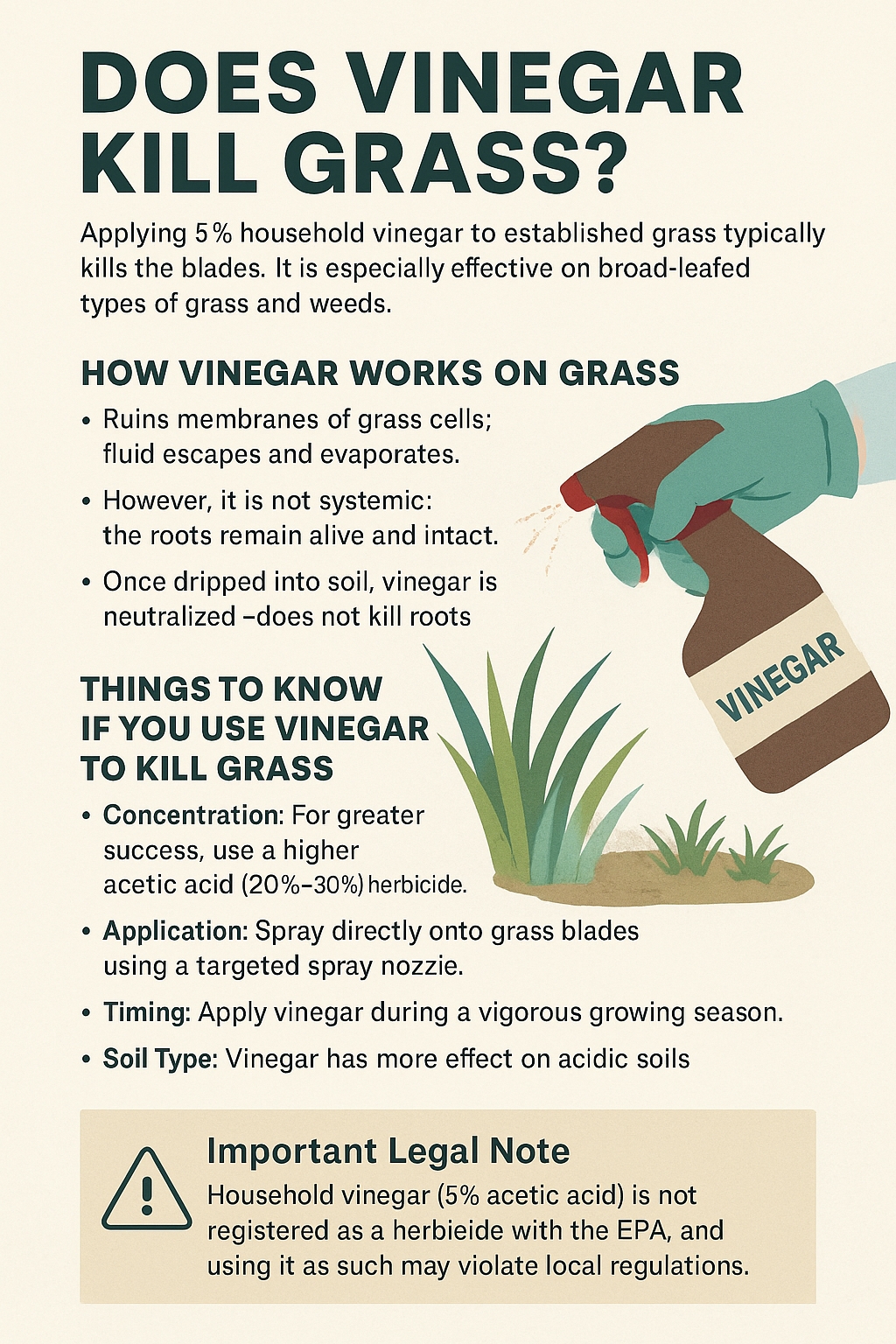Does Vinegar Kill Grass?
Most people work hard at growing lawns, taking good care of them, and keeping them green but occasionally you may want to kill grass permanently. This may be the case when planning a deck or patio, cleaning cracks in concrete, clearing edges of sidewalks and pathways, or managing growth around fence posts.
As gardeners try to reduce or eliminate their use of chemical herbicides, many have experimented with natural alternatives. One popular option is spraying grass with vinegar. But does household vinegar really work? Here’s what you need to know.
Applying 5% household vinegar to established grass usually kills the blades. It is especially effective on broad-leafed types of grass and weeds. However, one application of vinegar does not kill the roots, the plant will simply grow new grass blades.
Vinegar can kill newly sprouted seeds that are less than two weeks old, but it won’t affect seeds that haven’t germinated yet.
How Vinegar Works On Grass
When vinegar is applied to grass blades, it ruptures the cell membranes, allowing fluid to escape. That moisture quickly evaporates, dehydrating the plant and causing the blades to die.
However, vinegar is not systemic — it isn’t absorbed into the plant’s vascular system. That means the roots remain alive and intact, and new grass growth can begin soon after application.
Once vinegar drips off the blades and contacts the soil, it becomes neutralized and does not affect the root zone directly.
Things To Know If You Use Vinegar To Kill Grass
Grass prefers a soil pH between 6.0 and 7.0 (slightly acidic to neutral). Repeated use of vinegar can lower the soil pH, making it increasingly acidic. This weakens the grass roots over time, making them more vulnerable to disease, drought stress, and pests — all of which may eventually kill the plant.
Repeated vinegar applications can be a long and inconsistent process, especially for healthy, well-established grass. There’s also a risk of collateral damage, as vinegar can harm or kill nearby broad-leafed or flowering plants.
Household vinegar (5% acetic acid) is not registered as a herbicide with the EPA, and using it as such may violate local regulations. In contrast, stronger vinegar-based herbicides (20%–30% acetic acid) are regulated and sometimes require professional application due to their strength and potential for harm.



